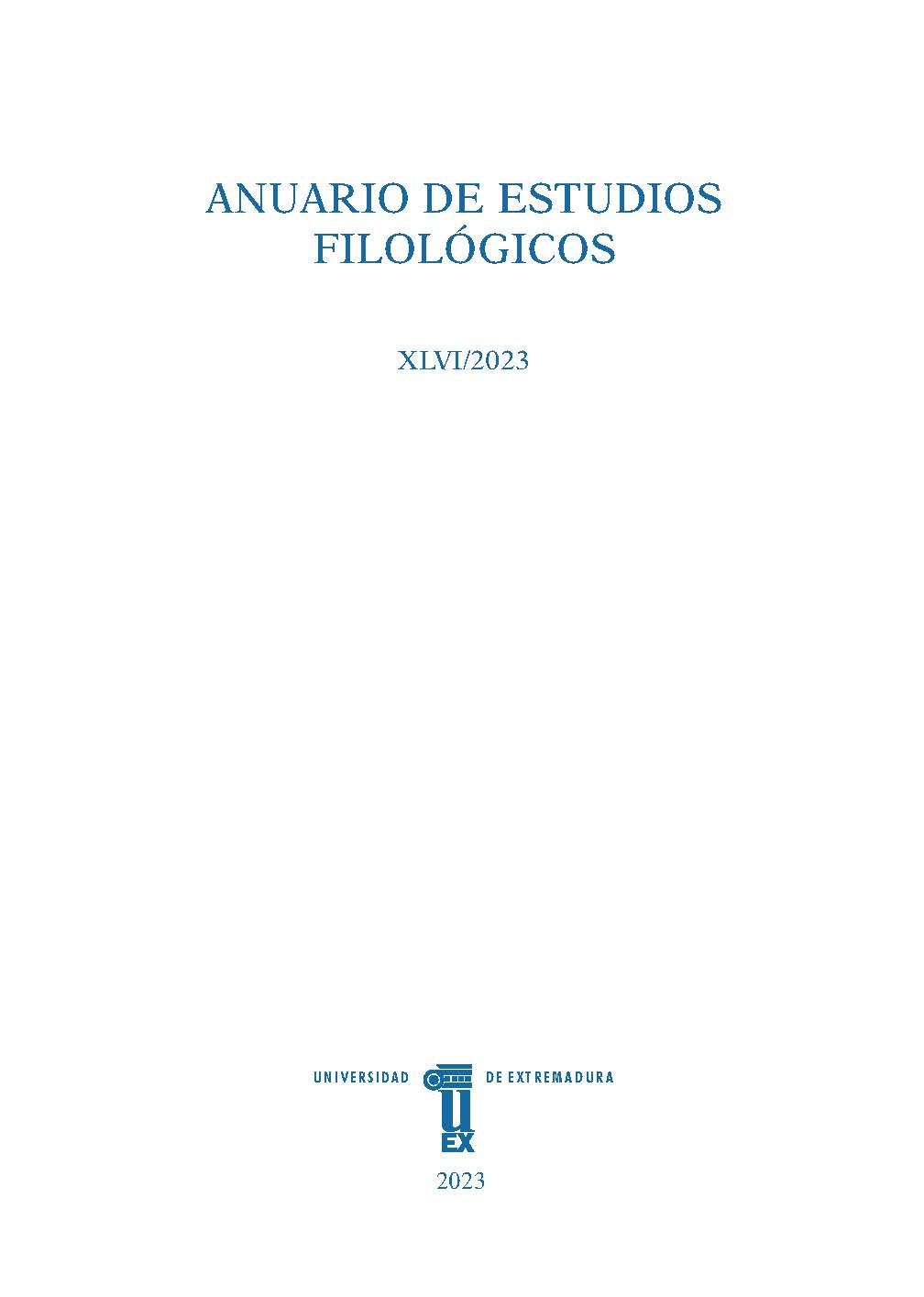El abismo del significado: desencantamiento en Things Fall Apart de Chinua Achebe
DOI:
https://doi.org/10.17398/2660-7301.46.259Palabras clave:
Things Fall Apart, Chinua Achebe, encantamiento, desencantamiento, cristianismo, racionalidadResumen
La obra maestra de Achebe, Things Fall Apart, gira en torno a una comunidad nigeriana y la vida de la gente Ibo. Ilustra la vida de la población local antes y después de la colonización británica. La novela narra la vida de Okonkwo, un miembro altamente valorado del clan Ibo, durante el período de colonización. En este artículo, pretendo argumentar que la vida de este clan estaba encantada antes de la colonización. Luego, analizo cómo esa vida encantada se ve afectada por la civilización occidental y el cristianismo y cómo esos elementos desencantaron la visión del mundo de los Ibo. La vitalidad de la materia para los Ibo y la inmaterialidad de los objetos para los cristianos contribuyeron a dos ontologías opuestas. Mientras que la ontología occidental busca definir, limitar y medir todo, la tradición Ibo da espacio a los elementos de magia, maravilla y miedo. Las puras fuerzas de la racionalidad occidental y el cristianismo sirvieron como elementos potentes que vaciaron de significado la cultura Ibo. Además, sostengo que la aparición de la tradición occidental dentro de la cultura Ibo causó el suicidio de Okonkwo y su crisis de identidad.
Descargas
Referencias
ABD-RABBO, Muna (2019): «Overlapping Character Variations in Chinua Achebe’s Things Fall Apart». Journal of Narrative Theory, 49.1, 55-81 (https://doi.org/10.1353/jnt.2019.0002).
ACHEBE, Chinua (1994): Things Fall Apart. London: Anchor Books.
ANSAH, Richard & SEGBEFIA, Michael (2022): «Elements of philosophy in Chinua Achebe’s Things Fall Apart (1958)». Research Journal in Advanced Humanities, 2.3, 36-48 (https://doi.org/10.58256/rjah.v2i3.716).
BENNETT, Jane (2001): The Enchantment of Modern Life: Attachments, Crossings, and Ethics. London: Amsterdam UP.
BENNETT, Jane (2004): «The Force of Things: Steps toward an Ecology of Matter». Political Theory, 32.3, 347-372 (http://www.jstor.org/stable/4148158).
BENNETT, Jane (2010): Vibrant Matter: A Political Ecology of Things. New York: Duke UP.
BENNETT, Jane & CHALOUPKA, William (1993): In the Nature of Things: Language, Politics, and the Environment. London: Amsterdam UP.
BOKOTIABATO MOKOGNA, Zéphirin (2019): «Insight into the Ibo Socio-Traditional Organization in Chinua Achebe’s Arrow of God and Things Fall Apart». International Journal of Linguistics, Literature and Translation, 2.1, 139-146.
CURRY, Patrick (2012): «Enchantment and Modernity». PAN: Philosophy, Activism, Nature, 12, 76-89.
DUBE, Saurabh (2002): «Introduction: Enchantments of Modernity». South Atlantic Quarterly, 101.4, 729-755 (https://doi.org/10.1215/00382876-101-4-729).
FAWOLE, Adebola (2018): «Are Cultural Dimensions Indicators of Corrupt Practices? Insights from Achebe’s Things Fall Apart, No Longer at Ease and Anthills of the Savannah». Journal of Literary Studies, 34.2, 13-26 (https://doi.org/10.1080/02564718.2018.1466447).
GOBLE, Erika (2017): «Beyond Human Subjectivity and Back to the Things Themselves: Jane Bennett’s Vibrant Matter». Phenomenology &Amp; Practice, 11.2, 70-78 (https://doi.org/10.29173/pandpr29352).
HOHMANN, Jessie (2021): «Diffuse subjects and dispersed power: New materialist insights and cautionary lessons for international law». Leiden Journal of In-ternational Law, 34.3, 585-606 (https://doi.org/10.1017/s0922156521000157).
INNES, Catherine Lynette (1990): Chinua Achebe. Cambridge: CUP.
INNES, Catherine Lynette & LINDFORS, Bernth (1978): Critical perspectives on Chinua Achebe. Washington: Three Continent Press.
IRELE, Francis Abiola (2000): «The Crisis of Cultural Memory in Chinua Achebe’s Things Fall Apart». African Studies Quarterly, 4.3, 1-40
JOVANOVIĆ, Gordana 2021: «New Materialism, Technophilia and Emancipation». International Review of Theoretical Psychologies, 1.1, 245-262 (https://doi.org/10.7146/irtp.v1i1.127091).
KAMMAMPOAL, Bawa & LAAR, Suuk (2019): «The Kola Nut: Its Symbolic Significance in Chinua Achebe’s Things Fall Apart». International Journal on Studies in English Language and Literature, 7.8, 26-40 (http://dx.doi.org/10.20431/2347-3134.0708003).
KORANG, Kwaku Larbi (2011): «Making a Post-Eurocentric Humanity: Tragedy, Realism, and Things Fall Apart. » Research in African Literatures, 42.2, 1-29 (https://doi.org/10.2979/reseafrilite.42.2.1).
LEACH, Josephine (1971): «A Study of Chinua Achebe’s Things Fall Apart in Mid-America». The English Journal, 60.8, 1052-1056 (https://doi.org/10.2307/814026).
LEONARD, Nicholas (2020): «The Arts and New Materialism: A Call to Stewardship through Mercy, Grace, and Hope». Humanities, 9.3, 1-34 (https://doi.org/10.3390/h9030084).
MALEKI, Nasser & NAVIDI, Maryam (2011): «Foregrounding Achebe’s Things Fall Apart: A Postcolonial Study». Canadian Social Science, 7.6, 10-15 (http://dx.doi.org/10.3968/j.css.1923669720110706.078).
MEREWETHER, Jane (2023): «Enchanted animism: A matter of care». Contemporary Issues in Early Childhood, 24.1, 20-31 (https://doi.org/10.1177/1463949120971380).
MENGARA, Daniel M. (2019): «Colonial Intrusion and Stages of Colonialism in Chinua Achebe’s Things Fall Apart». African Studies Review, 62.4, 31-56 (https://doi.org/10.1017/asr.2018.85).
MSISKA, Mpalive-Hangson (2009): «Things Fall Apart. A resource for cultural theory». Interventions, 11.2, 171-175 (https://doi.org/10.1080/13698010903053030).
NEFF, Ian (2020): «Vital and enchanted: Jane Bennett and new materialism for nursing philosophy and practice». Nursing Philosophy, 21.2 (https://doi.org/10.1111/nup.12273).
OKUNOYE, Oyeniyi (2010): «Half a Century of Reading Chinua Achebe’s Things Fall Apart». English Studies, 91.1, 42-57 (https://doi.org/10.1080/00138380903355189).
OUZGANE, Lahoucine & OKOME, Onookome (2009): «Encounters and Enga-gements with Things Fall Apart». Interventions, 11.2, 135-140 (https://doi.org/10.1080/13698010903052974).
OKUROĞLU ÖZÜN, Şule & BASKALE, Nagihan (2019): «The Distortion of Cultural Identity in Chinua Achebe’s Things Fall Apart». Trakya Üniversitesi Edebiyat Fakültesi Dergisi, 9.18, 86-99 (https://doi.org/10.33207/trkede.597888).
PROCTER, James (2009): «Reading, Taste and Postcolonial Studies». Interven-tions, 11.2, 180-198 (https://doi.org/10.1080/13698010903053253).
RAMSAY, Nissa (2009): «Taking-place: refracted enchantment and the habitual spaces of the tourist souvenir». Social &Amp; Cultural Geography, 10.2, 197-217 (https://doi.org/10.1080/14649360802652111).
SALAMI, Ali & HEKMATSHOAR TABARI, Bamshad (2018): «Things Fall Apart and Chinua Achebe’s Postcolonial Discourse». International Journal on Studies in English Language and Literature, 6.3, 19-28 (https://doi.org/10.20431/2347-3134.0603004).
SALER, Michael (2006): «Modernity and Enchantment: A Historiographic Review». The American Historical Review, 111.3, 692-716 (https://doi.org/10.1086/ahr.111.3.692).
SEARLE, Alison (2007): «The Role of Missions in Things Fall Apart and Nervous Conditions». Literature and Theology, 21.1, 49-65 (https://doi.org/10.1093/litthe/frl061).
VAN WYK, Alan (2012): «What Matters Now Review of Jane Bennett, Vibrant Matter: A Political Ecology of Things». Cosmos and History: The Journal of Natural and Social Philosophy, 8.2, 130-136.
WAFULA, Richard M. & WANJALA, Chris L. (2017): «Narrative Techniques in Chinua Achebe’s Things Fall Apart». Journal of Social Sciences, 50.1-3, 62–69 (https://doi.org/10.1080/09718923.2017.1311740).
WEST-PAVLOV, Russell (2022): «Modernisms and Modernities in Achebe’s Things Fall Apart». English Studies in Africa, 65.1, 72-86 (https://doi.org/10.1080/00138398.2022.2055860).
WILKINSON, Darryl (2016): «Is There Such a Thing as Animism?». Journal of the American Academy of Religion, 85.2, 289-311 (https://doi.org/10.1093/jaarel/lfw064).



